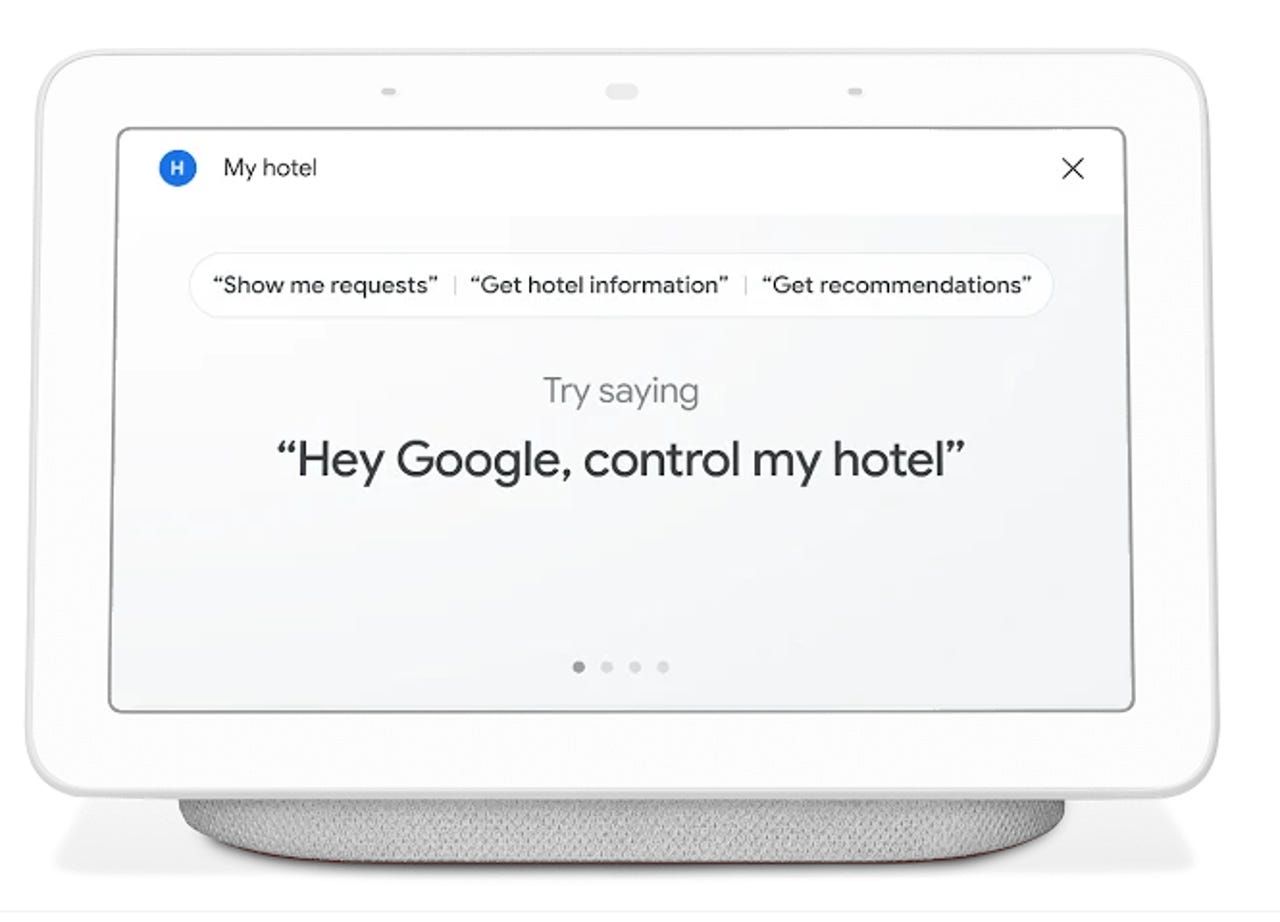Google is bringing the Nest Hub to hotel rooms


Google on Wednesday announced that it's partnering with the hospitality industry to bring Nest Hub smart displays to hotel rooms. The voice-activated smart display offers an easy way for guests to get information and to communicate with their hotel. Critically during the ongoing COVID-19 pandemic, it also provides a hands-free way of controlling one's hotel room environment.
Google, with the help of system integrators like Volara and SONIFI, is helping hotels create customized, branded display panels from which guests can get information and access different features. Hotels can tailor the Nest Hub experience to immediately respond to common questions or requests guests may have, such as, "Hey Google, ask my hotel for extra towels," or "Hey Google, what time does the pool close?" Hotels can also use the Nest Hub to enable fast checkout for customers or solicit customer feedback with mid-stay surveys.
Meanwhile, customers can use the smart display to access YouTube, play their own music via Bluetooth, or control hotel room devices like televisions and lights.
Google also explained how it aims to protect customer privacy. Hotel guests don't need to sign into the Nest Hub, and no activity on the device is linked to their personal account. No audio is ever stored, Google says, and activities are wiped clean from the device when it's reset for the next guest. There's no camera on the Nest Hub, and there's a physical mic switch users can turn off.
Google's main competitor in the smart home space, Amazon, has had a footprint in the hospitality industry for years. In 2018, the company launched Alexa for Hospitality, a specialized version of its voice assistant that integrates into popular hotel software systems for guest services.
Still, this isn't Google Assistant's first foray into the sector. Last year, Google began rolling out its real-time translation feature for Google Assistant, piloting it with business customers in the hotel industry. Google Assistant's "Interpreter mode" was tested at the concierge and front desks of hotels like Caesars Palace in Las Vegas and the Hyatt Regency San Francisco Airport, allowing guests to communicate with hotel staff in different languages.
The hospitality industry took a serious hit from the COVID-19 outbreak, and touchless technologies, like voice-activated displays, have been a part of the industry's recovery efforts.
"There are technologies that have been played with as a novelty for years, and now those novelties transform into credible and critical pieces of communication and infrastructure, communicating to guests regarding the state and cleanliness of their room, as well as enabling them to have touchless control and interactivity with their room," Vanessa Ogle, CEO of hotel technology company Enseo, told ZDNet earlier this year.